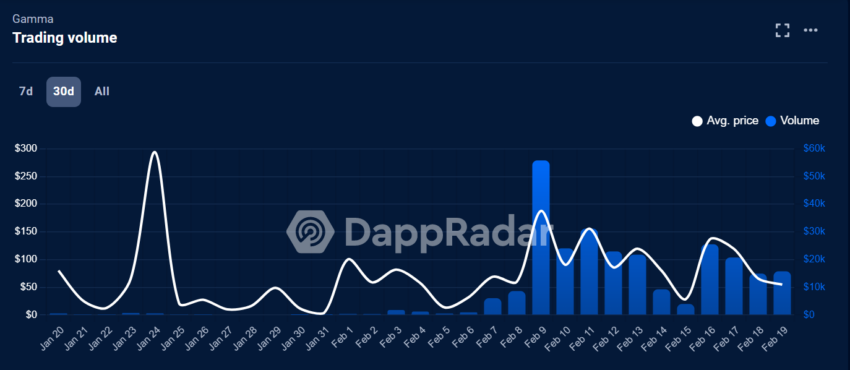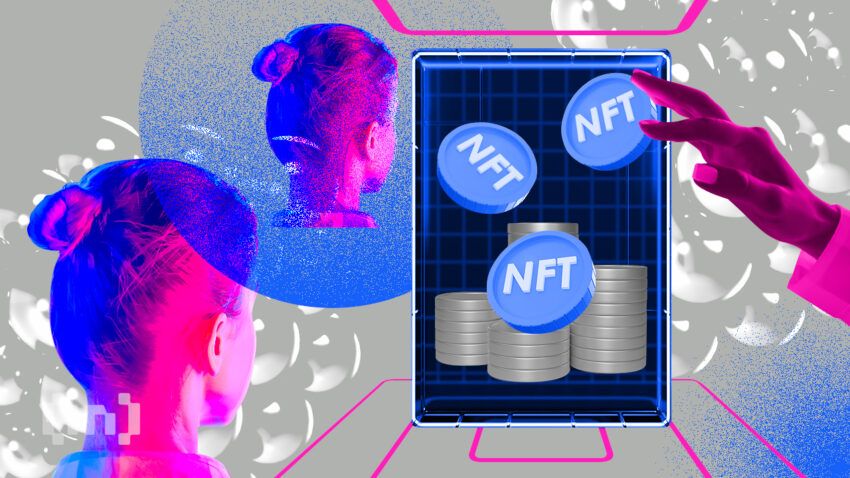Stacks’ native STX token rode the Ordinals hype to reach a nine-month high of $0.79 amid increasing interest in Bitcoin NFTs.
The STX token reached its highest value of $0.79 on Feb. 20, 2023, while Bitcoin NFT trading volume is up 1,123% amid the recent craze around Bitcoin NFT inscription project Ordinals.
Stacks NFT Ecosystem Set to Take Off Despite Criticism
According to Trust Machines CEO and Stacks’ co-creator Muneeb Ali, NFT creators have minted about $650,000 worth of NFTs on Stacks L2, with the ecosystem set to expand in 2023 with the introduction of the Nakamoto upgrade.

Stacks is an existing chain that will use a BTC-pegged derivative token sBTC for capital transfer between itself and the base Bitcoin chain after its upgrade later this year.
Unlike the Lightning Network, a Bitcoin scaling solution focused on payments, Stacks introduces smart contracts on a separate chain with an independent ledger. The Stacks chain connects to the Bitcoin network through a Proof of Transfer consensus algorithm.
Miners securing the Stacks blockchain use BTC to mint new STX, and STX holders can stake their tokens to earn BTC rewards. STX is also used to pay gas fees for smart contract transactions.
Stacks raised $47 million in venture capital and $23 million through the STX token offering approved by the U.S. Securities and Exchange Commission.
The designer of RSK, and EVM-compatible Bitcoin sidechain, criticized Stacks in a 2021 blog post for marketing its relationship with Bitcoin, despite having its own native currency and a distinct incentive scheme. He also criticized the lack of comprehensive documentation explaining the Proof of Transfer algorithm. He also said that Stacks’ smart contract programming language could introduce transaction bottlenecks that could increase costs.
Ordinals Revive Interest in Bitcoin DeFi
The Bitcoin ecosystem, including Stacks, has benefited from interest sparked by the launch of a new NFT-like project on Bitcoin called Ordinals.
Minting an NFT on the new Ordinals protocol involves storing data from in the Witness part of a Bitcoin transaction. Data from the NFT is inscribed on the first satoshi of that transaction’s first output. The Ordinals numbering protocol assigns a unique identifier to each satoshi, making it trackable. A Satoshi is one hundred millionth of a Bitcoin.
While the project initially divided the Bitcoin community, recent data suggests increasing interest from collectors and developers.
A Dune Analytics dashboard indicated that the number of Ordinal inscriptions surpassed 100,000 roughly a week ago. This bonanza allowed Bitcoin miners to rake in approximately $114,000 in transaction fees.
Wallet developers are reportedly scrambling to keep pace to allow Ordinals holders to view their NFTs in wallets. According to Ali, Ordinals currently shares NFT creators with Stacks.
He hopes Stacks will help scale the Bitcoin NFT ecosystem by overcoming limitations associated with Bitcoin’s block size.
For Be[In]Crypto’s latest Bitcoin (BTC) analysis, click here.
Disclaimer
All the information contained on our website is published in good faith and for general information purposes only. Any action the reader takes upon the information found on our website is strictly at their own risk.


